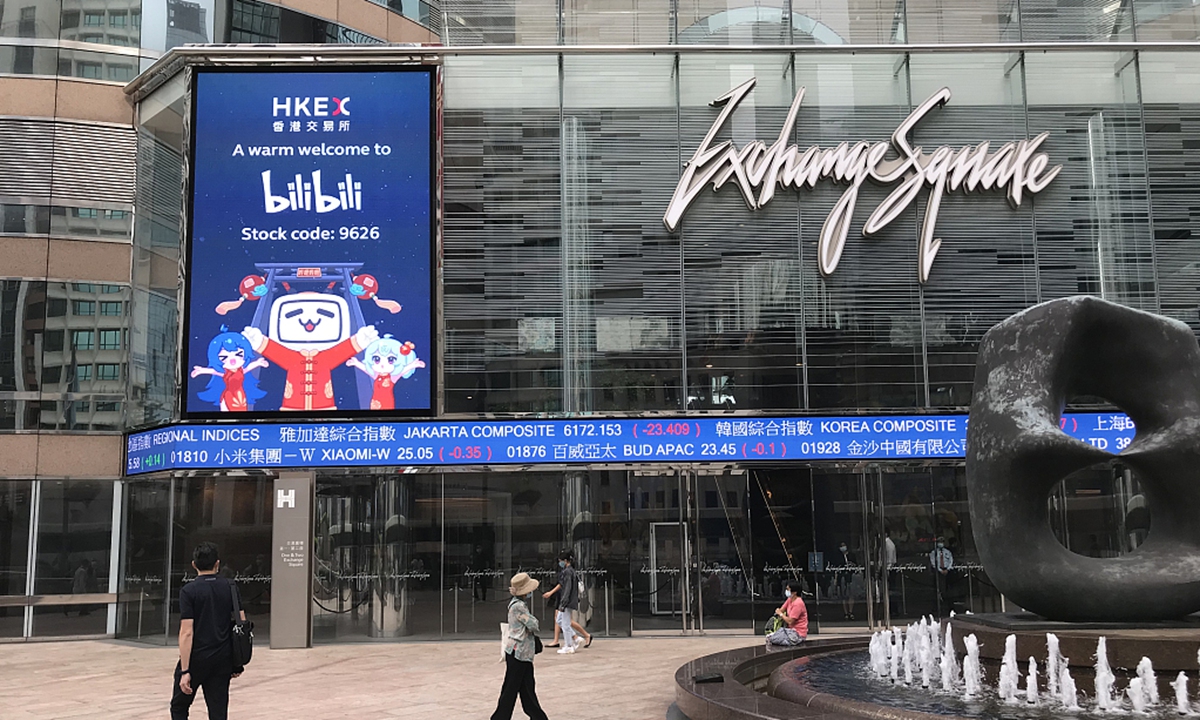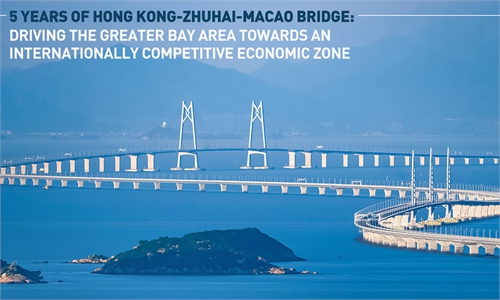
Chinese online video and gaming company Bilibili listed at Hong Kong Stock Exchange in 2021 . Photo: CFP
China's Hong Kong Special Administrative Region (HKSAR) will reduce the rate of stamp duty on securities trading from 0.13 percent to 0.1 percent, in a bid to uphold the city's status as an international financial center and maintain its market competitiveness, the city's head announced.
The target is to complete the legislative procedures by the end of November, John Lee, HKSAR chief executive, said on Wednesday when delivering his second policy address to the HKSAR Legislative Council (LegCo) since taking office.
The city will continue to promote stock market development including promoting the listing of overseas issuers, facilitating stock buyback by issuers, maintaining trading under severe weather, improving transaction mechanism, and other measures to shore up the capital market, according to details outlined in the policy address.
The market hailed the reform of Hong Kong stock market with the Hang Seng Index up about 2 percent in afternoon trading.
The index ended 0.55 percent higher at Wednesday's closing.
Laura Cha Shih May-lung, chairperson of the Hong Kong Exchanges and Clearing Limited (HKEX), expressed gratitude for local government's measures to promote sustainable development of Hong Kong's financial market, in particular the move of reducing stamp duties, which will help reduce trading costs.
Those measures will make a strategic layout for the Hong Kong market to seize major opportunities in the future, consolidate the foundation of the Hong Kong market, and improve its competitiveness and attractiveness, the chairperson said.
Li Daxiao, chief economist at Shenzhen-based Yingda Securities, said the HKSAR government move to cut stamp duty will not only help reinvigorate Hong Kong's capital market, but also has a positive effect on the mainland A-share market.
Since the beginning of the year, the Hong Kong stock market has been faced with mounting pressure marked by sluggish growth of transactions as global economic fragility and rate hikes have subdued its market sentiment.
A total of 47 companies were listed in Hong Kong in the first nine months, a decrease of 67 percent year-on-year, to raise $24.6 billion, according to Reuters.
In the policy address, Lee promised to strengthen offshore business of yuan as a way to reinforce its financial hub status.
"The government will continue to press ahead with the inclusion of yuan counters under the Southbound Trading of Stock Connect to facilitate the trading of Hong Kong stocks in yuan. We will take forward the introduction of offshore mainland government bond futures and enrich the variety of yuan investment products," Lee said.
Hong Kong has the largest offshore yuan liquidity pool and occupies the top position for global yuan transaction.
In June, the Hong Kong dollar-yuan dual counter model was launched by the HKEX. Under the model, investors will be able to interchange securities listed in both the Hong Kong dollar and yuan counters. Securities under the two counters are of the same class and holdings of securities in the two counters can be transferred without a change of beneficial ownership.
Global Times



